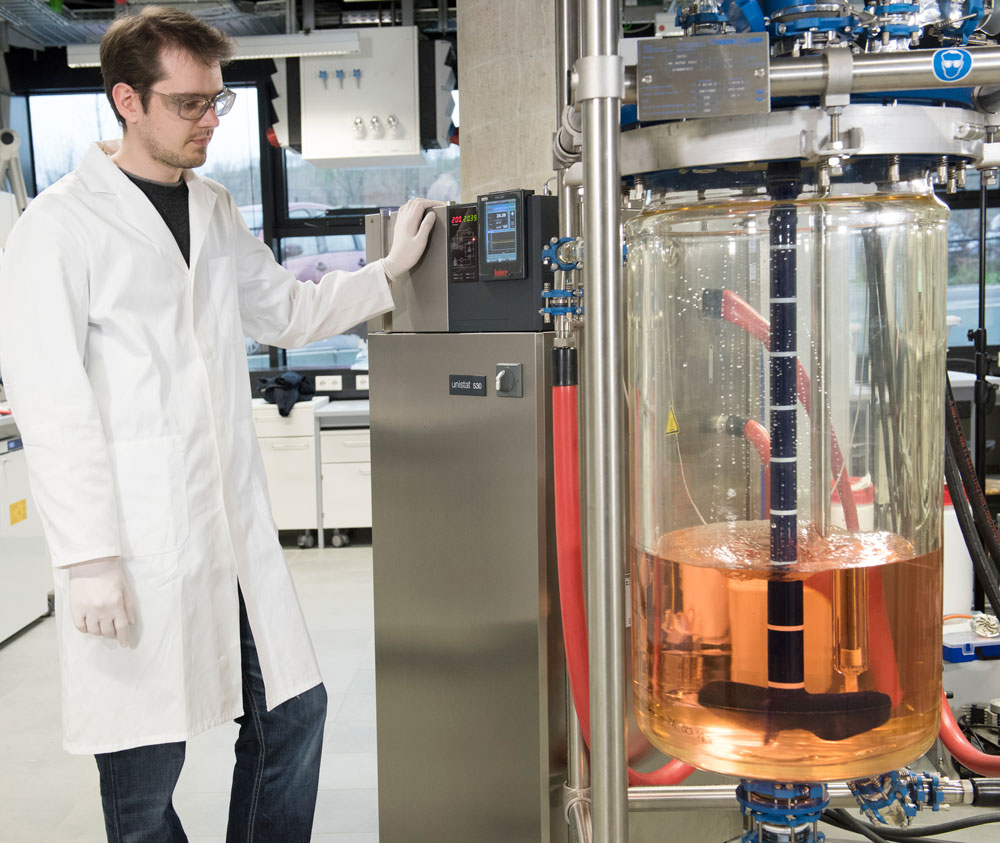Our focus is on the efficient scaling of chemical particle syntheses, continuously or up to the 100-liter batch scale.
With our expertise, we develop and optimize processes for the synthesis of nano- and microparticles. By using continuous processes and state-of-the-art technologies, we ensure precise control of synthesis conditions. Our goal is to provide customized solutions to successfully scale up your synthesis processes to industrial standards and deliver high-quality particles for your specific applications. Rely on our extensive chemical expertise to successfully implement your scaling requirements.
